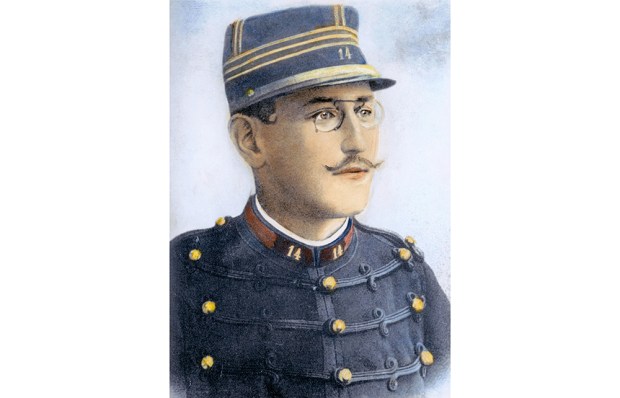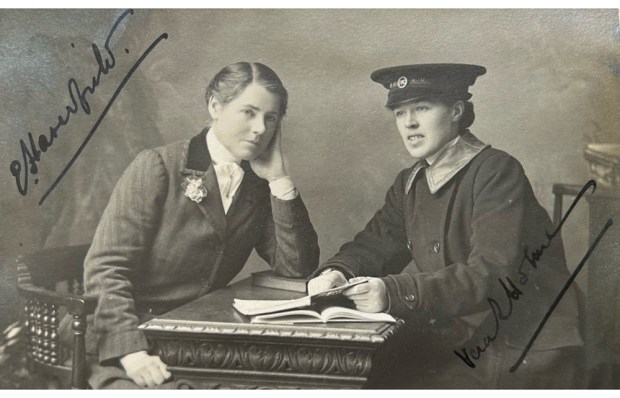It is good for historians to take the plungeinto political writing, using their knowledgewhere they can to illuminate our present predicament. I declare an interest: I have tried itmyself, on the other side of the debate. Onehas to be open with the reader as to one’sintentions and willing to expose one’s ownopinions to the test of evidence. Otherwise,the result is something like these intriguingly confused and confusing books, whichare really polemics against Brexit whilepurporting to be something else. Thoughvery different in style and assumptions,their prejudices lead to the same intellectualdead end.
Bernard Porter is a distinguished historian of immigration and imperialism and theauthor of an excellent book demonstratingthat few people in Britain bothered muchabout the empire – heresy in today’s climateof decolonisation.
His present style is a fruity hybrid ofQueen Victoria and Mr Podsnap, with lavish use of italics, brackets and scare quotes.It reads as though it was dictated and nevercorrected. Perhaps it was. Porter disarmingly pleads that during lockdown he was stuckin Sweden, his present home, with no accessto books or notes, but Bloomsbury couldsurely have edited out repetitions, errorsand contradictions.
Though his knowledge of the complexities of imperial history means that he has little time for ‘statue spoilers’, his ‘lessons forpatriots’ constitute a stern diet of debunkingto deflate patriotic (or as he writes ‘patriotic’) histories of Britain (or ‘Britain’). So thetone is generally negative. He is of coursesniffy about Churchill and finds it difficultto understand working-class patriotism.
Britain was philistine: ‘European visitors…didn’t generally come to admire its painting.’ That would have surprised Delacroix,criticised for his ‘English’ style, and Monet,‘the French Turner’. First world war ‘conchies’, he says, were imprisoned (in fact fewwere). Chamberlain was right about appeasement, as we would have lost the war in 1938(a judgment few specialists now accept). Andit was really won by Russia anyway (a viewthat ignores recent research). On a morepositive note, he admires ‘the almost saintlyJeremy Corbyn’, and repeatedly assures usthat Marx was right. Debunking aside, hisoverarching theme is that Britain is pathologically obsessed by its history.
He makes strenuous efforts to be, or atleast to appear, even-handed, which meanslong sentences with thickets of conditional sub-clauses. When he gets on to Brexit,however, the view becomes crystal clear,despite the verbal camouflage. He loathesEton, Boris and Jacob Rees-Mogg (not really ‘top notch class-wise’). Brexiteers, whennot moved by ‘plain stupidity’, are fascists.Typically, he hedges: fascism is perhaps ‘not a very exact term’, but ‘more and more commentators’ (such as Hillary Clinton) discerned ‘features of proto-fascism’. Somemay read this as scrupulous attention toaccuracy; others as mud-slinging by proxy.
Hannah Rose Woods comes from a recentgeneration, and her book is very different yetintriguingly similar. There is nothing of theOld Left about it, and passing remarks suggest she applauds ‘statue spoilers’. Its pedigree is the ‘cultural turn’, which at its leastdemanding means thinking up an abstract theme and embroidering it with examples.Woods also adopts the novelty of writinghistory backwards, beginning in 2021 andending up in the 16th century. I don’t think itmakes much difference, as the simple argument is the same from end to beginning:‘Nostalgia’ is the dominant characteristic ofBritish (mostly English) culture.
‘It can seem as if Britain is a nationobsessed by history,’ she writes, echoingPorter. It certainly can seem that if the authorchooses to demonstrate it by forcing a widevariety of phenomena into a Procrustean bedof nostalgia. Protestantism – nostalgia forprimitive Christianity. Catholicism – alsonostalgia. Admiration for the classics: nostalgia. Building Palladian country houses,ditto – and Gothic Revival ones too. Modern art and sexual liberation have nostalgialurking somewhere. The Green movement issomehow omitted. Almost every reference tothe past is labelled nostalgia. The list seems endless, as eventually does this harping ona single chord.
Individual parts of the book are quite lively and though much of it is familiar (Horace Walpole, William Morris, John Ruskin,Edward Carpenter et al.) not all of it is. Thebest part is on late-19th-century urban fears,seemingly drawing on the author’s PhD dissertation. But when nostalgia is so stretched asa concept that it seems to explain everything,including opposites, it explains nothing.
The deepest intellectual trap Woods andPorter slide into is ‘exceptionalism’ – theidea that Country A is different from every-where else. Well-bred historians shun exceptionalism and, knowing that, our two authorspay lip service to the orthodoxy. But bothneed exceptionalism if their arguments are tohold any water: we have to accept a range ofattitudes as uniquely or characteristicallyBritish even though they are widely sharedtransnationally.
Porter simply assumes that Britain isuniquely obsessed with its past. Woods similarly assumes that Britain or England isuniquely nostalgic. Neither tries to argue thecase. How could they? One does not need toknow much about other European countriesto realise that interest in and emotions aboutthe past are universal. Protestantism, Classicism, Romanticism, ruralism, the GothicRevival and so on are not in any meaningful sense British. Limiting oneself to British examples cannot disguise that obviousfact. The European Union itself is foundedon obsessions with the past. But unless ourauthors insist that Britain is the exception,their explanations of Brexit make no sense.
For their proposition is that Brexit wasnostalgia: for empire and/or the second world war – hardly an original thought. As Woodassures us, ‘many observers’ agree with this,including Vince Cable, Afua Hirsch, DavidOlusoga, Fintan O’Toole and various Americans. Some readers will be impressed. Likemost Remainer polemicists, Woods andPorter have little if anything to say aboutEurope or the EU. It’s easy to regard Britainas exceptional if you ignore everywhere else.In fact, British attitudes to the EU in 2016were typically European: about the sameas Holland and Germany, less Euroscepticthan France, much less so than Greece. The‘exception’ is that the British were givena vote and Remainers failed to reverse it.
Could it be that Brexit had something todo with the problems of the EU rather thanthe unique peculiarity of the British? TheEuropean ‘project’ has been losing popularsupport all across Europe since the 1990s.Perhaps ‘nostalgia’ and ‘obsession with thepast’ have been breaking out in every country. Or perhaps more relevant are economicfailure, unemployment and unaccountability.If we follow the historical approaches takenin these two books, we shall never know.
This book review appears in the forthcoming Spectator, out tomorrow
Got something to add? Join the discussion and comment below.
Get 10 issues for just $10
Subscribe to The Spectator Australia today for the next 10 magazine issues, plus full online access, for just $10.
You might disagree with half of it, but you’ll enjoy reading all of it. Try your first month for free, then just $2 a week for the remainder of your first year.














Comments
Don't miss out
Join the conversation with other Spectator Australia readers. Subscribe to leave a comment.
SUBSCRIBEAlready a subscriber? Log in